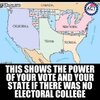I personally think the framers of the 2nd amendment knew very well that at the time, all men between the ages of 17 and 45 were to be the militia, and that when they said the people they did not exclude men of ages prior to, or older than that age group. I find it interesting that when I was 16 (or younger) I had no problem buying, or carrying a firearm. My first center fire handgun being purchased at age 16 from the disposition of such guns from a local police department. Or that at the age of 15 I walked into our local hardware store to purchase ammunition for the handgun I was wearing openly on my belt. That was in the late 50's, early 60's.
I believe that constituted the keeping and bearing of arms. However today some people want to argue that what I had the right to do then, somehow is no longer constitutional today. Did the 2nd amendment change ? Only in the eyes of anti-gun people and some lawyers.
I believe that constituted the keeping and bearing of arms. However today some people want to argue that what I had the right to do then, somehow is no longer constitutional today. Did the 2nd amendment change ? Only in the eyes of anti-gun people and some lawyers.



